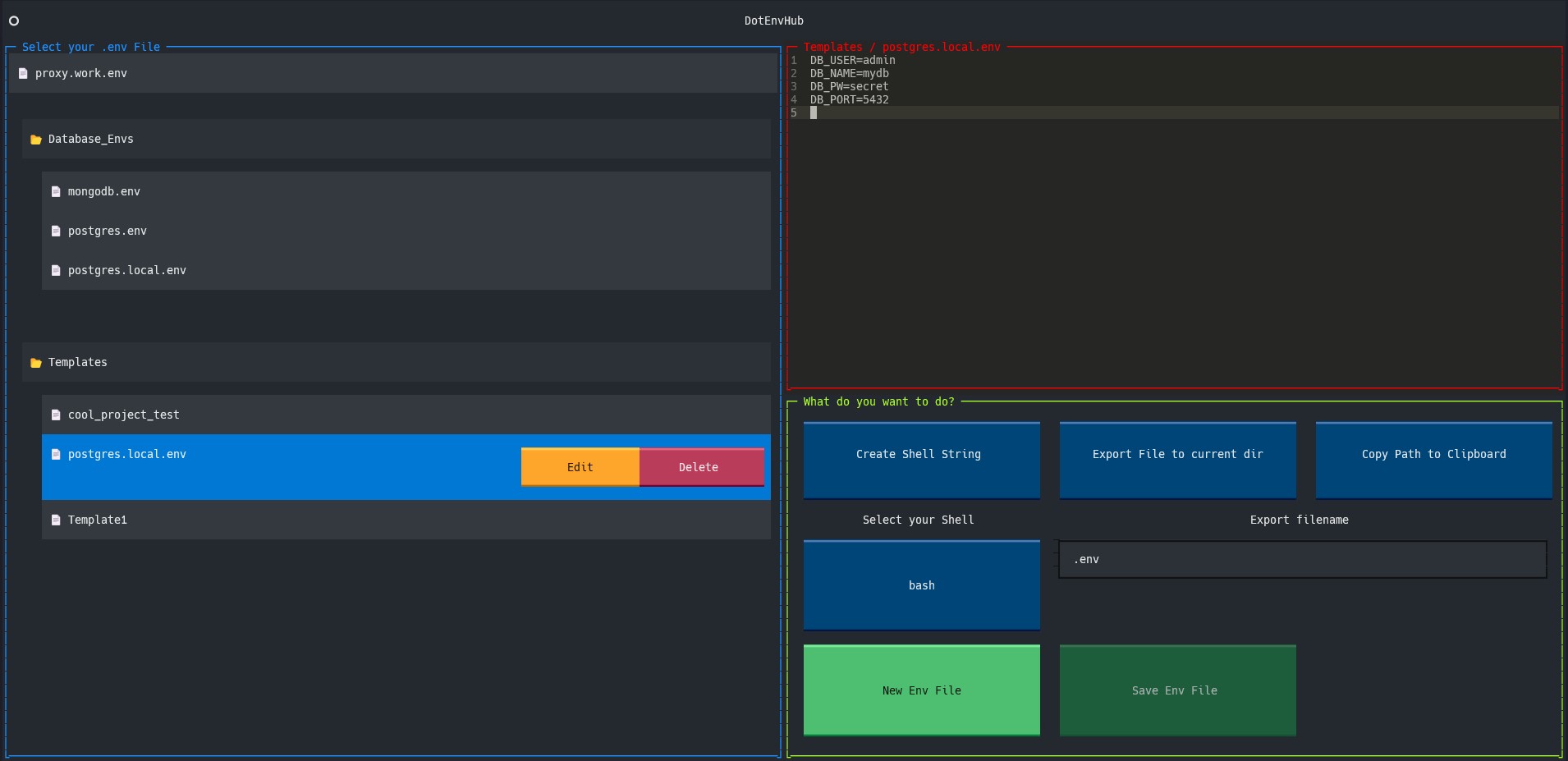Awesome
<!-- These are examples of badges you might want to add to your README: please update the URLs accordingly [](https://cirrus-ci.com/github/<USER>/dotenvhub) [](https://dotenvhub.readthedocs.io/en/stable/) [](https://coveralls.io/r/<USER>/dotenvhub) [](https://pypi.org/project/dotenvhub/) [](https://anaconda.org/conda-forge/dotenvhub) [](https://pepy.tech/project/dotenvhub) [](https://twitter.com/dotenvhub) -->dotenvhub
Your Terminal App to manage your .env files
Introduction
DotEnvHub helps storing and accessing your project specific .env files from a central place to setup your environment variables. Supporting you to follow the 12-factor principles when developing applications.
Features
- Organizes files centrally under
user_data_dirfollowing the XDG Basedir Spec - Saves your last selected shell automatically via a config file under
user_config_dir - Supports Creating/Editing/Deleting files in your dotenvhub
- Currently provides 3 ways to set your environment variables:
- Copy the Shell specific command to set the environment variables into your clipboard
- Create a Copy of the selected file into your current working directory
- Copy the path of the selected file to be used with e.g. python-dotenv
without creating a copy in the project
Installation
You can install dotenvhub with one of the following options:
# not recommended
python -m pip install dotenvhub
pipx install dotenvhub
rye install dotenvhub
uv tool install dotenvhub
I recommend using pipx, rye or uv to install CLI Tools into an isolated environment.
Usage
Using the Graphical UI
After Installation the Interface can be opened with:
dot
Use Ctrl+q to close the interface.
Using the CLI
The Creation of a Copy in the CWD and copying the Shell String to set the environment variables can also be done directly in the CLI:
To create a copy of FOLDER/FILE from DotEnvHub and save it as SAVENAME in your CWD:
dot copy <FOLDER/FILE> -N <SAVENAME>
To copy the string to clipboard to set FOLDER/FILE from DotEnvHub in your Shell of Choice:
dot shell <FOLDER/FILE> -S <SHELL>
Feedback and/or Issues
If you have feedback or find bugs, feel free to open an Issue.
:warning: DotEnvHub uses pyperclip to handle copy/paste actions.
Based on the pyperclips documentation, you might need additional packages installed
on linux systems like xclip or xsel which can be installed with:
sudo apt-get install xclip
sudo apt-get install xsel
like mentioned here

